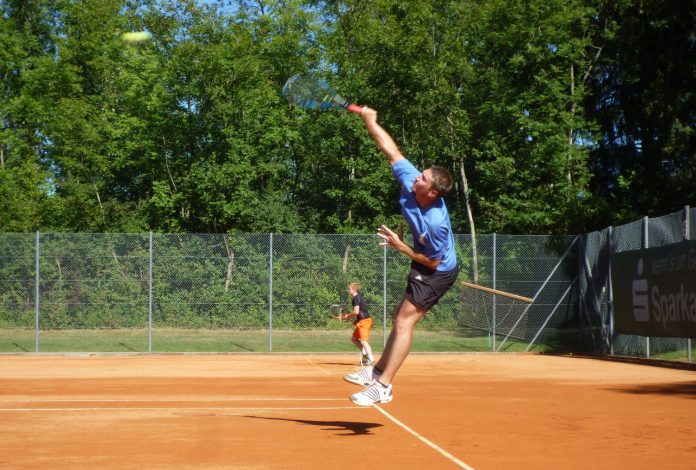A child, who starts playing tennis from this stage of school, develops good self-esteem and learns to handle extra pressure. Also, the child develops his strategic ability and is more aware of his environment.
But not everything ends there. One can get benefits physically, mentally and socially if he plays tennis.
-
Bone strength
Playing tennis strengthens bones of children and adolescents, as well as helps to prevent osteoporosis.
- Motor coordination
Children who play tennis sharpen their general dynamic coordination by involving the entire body. Besides, this sport sharpens their eye-segment coordination. Because, they can perceive the link between the visual field and the fine motor skills of the arms and hands.
- Aerobic, cardiovascular and speed exercise
Without realizing it, children can run for a long time while maintaining a high level of energy. And this develops their speed, strengthens their heart, and helps them rest at night.
-
Flexibility
Kids will learn to have a good habit of stretching before and after being active. Additionally, they will constantly stretch and maneuver to catch the ball, dramatically improving their flexibility.
- Balance
Learning to serve and the constant run-stop-run pace increases balance.
- Immune system
Playing tennis means growing in the best possible physical health, which improves the immune system.
Social benefits
Although the physical benefits are very important, social skills that children develop on the tennis court will also have a positive impact on life. Also, they develop in the classroom and, subsequently, on their professional future.
- Mutual support
By making new friends and sharing interests with other children, a sense of belonging is created that could lead to a structure of mutual support within and outside of the school environment.
- Learn to lose
All children have to know how to lose, since there is no harm in healthy competition. Learning to do it gracefully, without throwing a tantrum or giving up and expressing frustration in a healthy way, is a very important life lesson.
- Respect
Children learn respect for coaches, umpires and other players and it is a part of the dynamics on the tennis court. But it is a value that is transferred to life: if you break the rules, you lose.
-
Control of emotions
The part of being an adult is being able to control your emotions. To achieve this, children must learn to manage negative emotions and control stress levels.
- Self-esteem
Our self-image depends on our self-esteem, which is closely related to the way we feel about our body. If we have a healthy and fit body, we like to be in it and most likely we have good self-esteem.
- Patience
Everything what we want to do requires practice and consistency in practice requires patience. In fact, consistency is more important than victory.
-
Dedication
Spending time and effort on tennis have some positive results. However, dedication on the tennis court should be reflected in schoolwork and in life. Remember that everything worthwhile requires effort and nothing is free.
- Teamwork
Any team sport teaches the value of working together. Playing doubles on the court creates a close relationship with the teammate. Because communication does not always include words and a non-verbal understanding of another person develops.
- Empathy
Playing team tennis is letting your partner be the star after scoring a point and being genuinely happy for it. By learning the value of empathy, your child will be able to adapt to different social groups and be helpful to others.
Surely you never thought that playing tennis from an early age would have all these life lessons.


![How Much is Lil Baby’s Net Worth in 2024 [Latest Info] Lil Baby Net Worth](https://www.wariat.org/wp-content/uploads/2024/03/Lil-Baby-Net-Worth-150x150.jpg)
![Rob Lowe Net Worth Speculation in 2024 [Comparative Analysis] Rob Lowe Net Worth](https://www.wariat.org/wp-content/uploads/2024/03/Rob-Lowe-Net-Worth-150x150.jpg)



